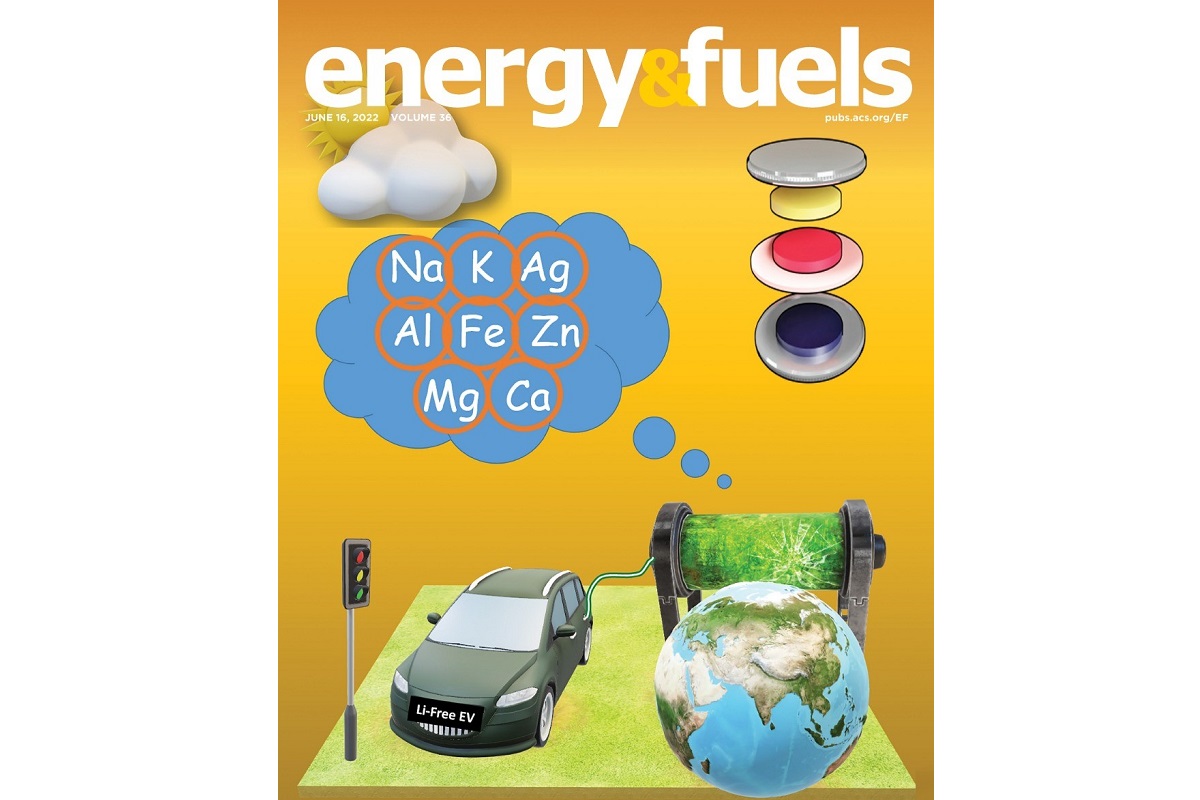Facing rising prices of petro-fuels, the customers are attracted to hybrid vehicles despite the price war among auto industries while they launch new vehicles. Exclusively battery-operated vehicles can have multiple problems like charging options in rural areas, overheating, blast leading to fire, leakage, durability, and recyclability.
Finding a permanent solution and option to existing Lithium batteries, Jodhpur’s Indian Institute of Technology (IIT) scientists for the first time have devised a ‘Calcium-Magnesium’ made a battery that is flawless and non-problematic in all aspects, low cost in their raw material availability and viability in manufacturing commercially.
Quoting a research paper titled ‘Lithium-Free Batteries: Needs and Challenges’ recently published in the international journal of “Energy & Fuel” as a cover story, Dr. Rakesh Sharma, Associate Professor at the Department of Chemistry in IIT-JU and who led the research team told SNS, “Next-generation rechargeable batteries based on zinc (Zn), magnesium (Mg), calcium (Ca), and aluminum (Al) are the most promising options”.
“Divalent batteries (e.g., Mg2+, Ca2+, Zn2+) may achieve greater theoretical energy densities, safer electrolytes, and lower costs than Li-ion batteries. They are safer and more environmentally friendly than Li-ion batteries. Because they do not need complicated electrolytes, they have an advantage over Li-ion batteries in terms of the electrolyte composition. They show potential volumetric and specific capacities comparable to Li-ion batteries. Additionally, they are more plentiful than lithium, enabling more affordable and sustainable batteries”, he said.
“In recent years, the use of lithium-ion batteries has increased considerably. There is an industry expectation that the market for lithium-ion batteries will expand from $30 billion in 2017 to $100 billion by 2025. Besides the benefits, lithium-ion (Li-ion) batteries have limitations and drawbacks that hinder their application for large-scale marketing and industrial applications”, Dr Sharma underlined the present scene.
According to Dr Sharma, the main crisis of existing Lithium is going to be its import from Bolivia, Chilli, Brazil, USA, and China in the future as it is not produced enough in India’s Karnataka from original ore and whatever is available is usually required for Atomic Energy. Lithium batteries’ fabrication and their reaction with nitrogen in the atmosphere is always dangerous leading to the fire. Whereas Calcium and Magnesium abundantly exist in marbles, tolerate heat up to 50 degrees Celsius of temperature, are available at a very low cost, have potential for recyclability, and have no disposable problems like Lithium made batteries.
Hitting at China trying to hold a monopoly on new options, the young researcher said, “The present Li-ion batteries will not have enough potential to satisfy future commercial energy demands. To accomplish a massive performance boost, Li-free batteries with metal alloy materials such as cathode, Zn, Mg, Ca, and Al as anode with modified electrolytes, will need to be developed in the next few years to support a new breed of Li-free batteries known as high-voltage or high-capacity batteries.
Working filing its Patent, Dr Sharma claimed that their paper aims to bridge the gap between academics and industry by advocating the best practices for measuring performance and proposing recommendations concerning essential
The technology road map of these battery technologies and their current applications, commercialisation, and future technologies are discussed to open a window for promoting the commercial application of lithium-free metal batteries, he claimed.
Advertisement











